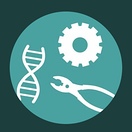Overview
Our research group at UCL Biochemical Engineering is dedicated to pushing the boundaries of synthetic biology, with a significant focus on CRISPR-based low-cost diagnostics. We are developing innovative approaches to leverage the power of CRISPR technology for rapid, affordable, and highly accurate diagnostic applications. These next-generation diagnostic platforms are designed to be easily deployable in a variety of settings, from state-of-the-art laboratories to low-resource environments.
Importance
In an increasingly interconnected world, the importance of timely and accurate diagnostics cannot be overstated. Traditional diagnostic methods can be time-consuming, expensive, and often require sophisticated equipment. Our work in CRISPR-based diagnostics aims to address these limitations by creating scalable solutions that are both cost-effective and exceptionally precise. This is particularly crucial for tackling infectious diseases, antibiotic resistance, and other urgent global health challenges.
Techniques and Tools
To realize our vision of affordable and accessible diagnostics, we employ a variety of groundbreaking techniques:
- CRISPR/Cas Systems: Exploiting the inherent specificity of CRISPR/Cas9 and other Cas proteins to identify and quantify nucleic acid sequences of interest.
- Lateral Flow Assays: Combining CRISPR with user-friendly, paper-based platforms for readouts that do not require specialized equipment.
- Isothermal Amplification Methods: Enabling DNA/RNA amplification at constant temperature, making it more adaptable to low-resource settings.
- Machine Learning Algorithms: Integrating computational models to predict diagnostic outcomes and improve assay design.
Potential Applications
Our CRISPR-based diagnostic platforms have broad and impactful potential applications, including but not limited to:
- Infectious Diseases: Rapid identification of viral and bacterial pathogens, facilitating quicker and more effective treatment plans.
- Genetic Disorders: High-throughput screening for genetic mutations linked to hereditary diseases.
- Cancer Detection: Identifying genetic markers for various forms of cancer at early stages.
- Environmental Monitoring: Detecting and quantifying harmful microorganisms or pollutants in environmental samples.
